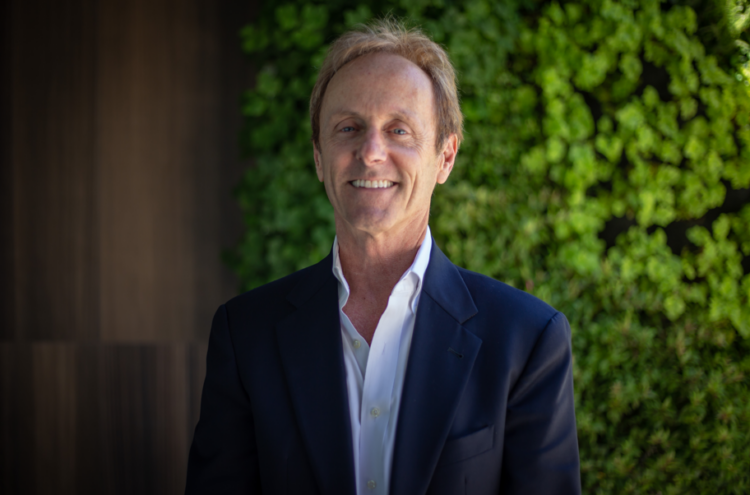Artificial intelligence (AI) is forcing HR professionals to reinvent how they approach their role, while at the same time delivering real return on investment (ROI) for the function, according to Josh Bersin.
The global industry analyst, and CEO of the renowned Josh Bersin Company, said: “AI is changing the fundamental structure and roles of HR.”
New analysis by his company shows there is a positive pay off for HR in terms of ROI.
He spoke to Benefits Expert as he unveiled fresh market analysis on the effects of AI on HR in two reports titled ‘HR Tech 2025 – AI redefines the landscape’ and ‘HR technology: AI trailblazers’.
Key findings showed that AI ROI can be found in many areas of HR, particularly the major ones that include recruiting, skills sourcing, training and internal work mobility.
Real world ROI
In recruitment, for example, “companies are reducing time to hire and recruitment process steps by 70 to 80 percent with automated sourcing, intelligent interview scheduling, and interview intelligence”, he said.
“Employers are using AI to find job seekers with skills nobody recognised before, supporting the sourcing of skills, plus there is a 20 to 40 percent increase in candidate pools through automatic sourcing.”
Organisations have used AI to build learning and development programmes “in hours instead of weeks, saving huge amounts of time”, and AI can deliver employee services via chatbots meaning “around 15 to 20 percent of employee call centre agents can be redeployed”.
Bersin said that AI can help companies ‘insource’ work through AI matching that helps them boost internal work mobility. “One company has saved $25 million a year on contractor spend in the first year,” he added.
What gets measured
In terms of measuring this ROI, Bersin highlighted “faster process times, quicker access to data, enhanced productivity for highly-paid employees, reduced call centre costs, faster and more immediate training and employee communications, quicker detection of fraud or overtime expense, and hundreds of other projects”.
There are intangible returns as well as AI enables faster access to integrated data.
“You can ask the AI agent a question like: ‘What are the sources of low profitability this quarter?’, and instantly receive insights such as ‘excessive overtime in department A’, without waiting a month for someone to do an analysis. This includes questions such as ‘why is this person underperforming?’ and lots of talent questions as well.”
Nature of change
On the issue of how AI is changing the nature of HR itself, Bersin said that the big shift is that “every mundane, uncreative process in HR is vanishing quickly”.
“HR people do a lot of paperwork, entering data into legacy systems, tracking compliance, etc, and those roles are shrinking,” he said.
He pointed to new roles in HR such as corpus management – the management of large data sets, referred to as a corpus, that are used to train, improve, and fine-tune AI systems – as well as training and monitoring AI agents, programming agents to handle routine work, integrating AI platforms with each other, and, of course, teaching managers and employees how to effectively use AI.
Tech trailblazers
Bersin’s analysis also highlights the profound transformation taking place in the $200 billion global HR technology market.
Companies that are setting the pace of change in AI for HR are named in the trailblazers report, and include Workday Illuminate, Lattice, Sana Labs, Arist, Eightfold.ai and Gloat, as well as Galileo™ from Bersin’s own company. See the trailblazers report for the full list.
Bersin said: “These vendors are ones we know well, and we can vouch for their products.
“They’re large enough to be a safe investment and they’re well ahead of the pack in applying AI to many areas of HR.”
Bersin highlighted the example of the Roll Royce HR team, which he said has used the AI assistant Galileo™ to “radically improve” the onboarding process for engineers in its jet engine and defence business.
“Instead of going through a two-year formal onboarding, new employees now have access to an almost ‘limitless chatbot’ to ask questions about processes, engineering designs, Rolls Royce standards, and videos, etc.”
Learn and experiment
Looking ahead, Bersin said HR needs to prioritise learning about these AI tools and start experimenting.
“All HR teams are bogged down with time-wasting routine work, and we have to relentlessly automate it without worrying about someone’s job going away. That person can now take on new things!”
And when it comes to getting ahead and staying ahead of the pack with AI, Bersin is clear that, first, HR needs to make sure it partners with IT to establish AI standards, maintain data integrity, and ensure security and authentication.
“You don’t want to bring a new AI system into the company if IT is not involved,” he said.
“Second, work with organisations like ours to find out what others are doing – the pace of adoption is spectacularly fast, and while many tools are still in development, ROI is everywhere.”
HR assemble
Asked what role HR can play in assembling and leading AI-focused teams, he said: “In most companies, there is a core ‘AI team’ that oversees the technology as a whole, while functional teams – recruiting, L&D, call centres, business partner enablement – look at the tools that best fit their function.
“There isn’t, and never will be, one ‘master AI’ for all functional areas – the more specialised the solution, the higher the ROI.”












